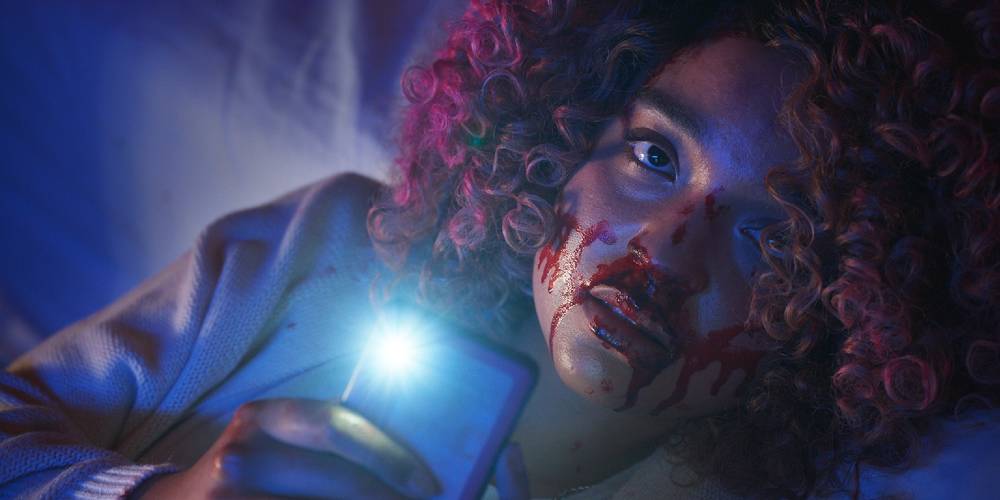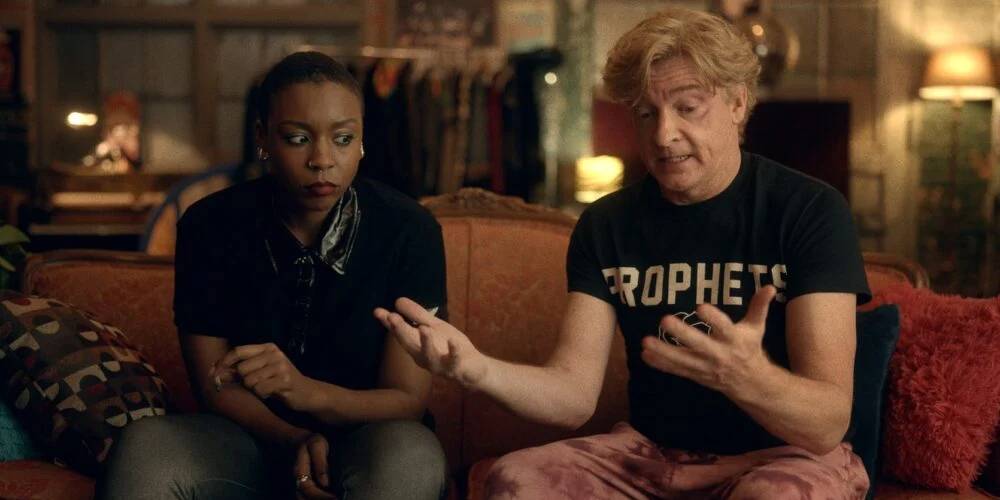Read also:
How to Watch FX Live Without CableHow To Watch AMC Without CableHow to Watch ABC Without CableHow to Watch Paramount Network Without CableThree wildly different features united by standout work from Black women actors and deft, distinct senses of humor.
(This dispatch is part of our 2022 Fantasia Film Festival coverage.)
The three films in this dispatch from Fantasia all feature compelling performances by Black women who fully embody their characters as humans with logical wants and drives. They’re never reduced to caricature or mere plot devices. Instead, they each offer fresh perspectives on past, present, and future issues facing Black women. And they do so with insight, courage, and fortitude.
Anyone who’s worked in an office has had to pick up someone else’s slack. For women, doing someone else’s work can be a constant task that offers no pay. Véronique Jadin’s new film Employee of the Month plays with the tension that buildup creates before finally letting it crack with fiendishly bloody comedy.
Inès (Jasmina Douieb) has been the only woman at the office for some time now. Always overlooked and constantly cleaning up after her male coworkers, Inès’ life feels suspended. Every day it’s the same pinching chauvinism, the same drudgery. That’s why the presence of the new intern, Melody (Laetitia Mampaka), serves as a release. The suspension slowly snaps, and Inès’ darkest daydreams come true.
Like Quebecois surrealist Quentin Dupieux, Jadin finds humor in the chain of consequence. Each gag is positioned perfectly, setting up the context for the following bloody deed so that physics and chance are the killers and so on. Jadin orchestrates this twisted fascination of watching a Rube Goldberg trainwreck while adding a gory and contemporary criticism of gender.
Inès is the perfect tightly-wound office white lady. Clasped under her cardigan are all the liberal feminist anxieties and critiques of “workplace culture.” She does all the work; she takes it on the chin, always an angel, never a bother. We crave revenge for her.
But she’s nothing without Melody. Melody keeps her grounded. As the lone Black person in the film, Melody has to shoulder a lot of outrageous whiteness. But in Mampaka’s capable hand, Melody never becomes a magical aide or caricature. Instead, she uses her role to add a critical perspective on Black women’s specific struggles in the workplace. She’s exhausted by the mess. And we believe Melody lives in this state of exhaustion with white folks.
Though aligned with Inès, Employee of the Month still allows Melody to punch up on her own time. For any film about avenging historical workplace discrimination, a Black perspective is a vital addition needed to make a critique trenchant and productive. Laetitia Mampaka is an example of how such an investment pays dividends.

For a more complex and contemporary-feeling engagement with Black femmeness, look no further than Kane Senes and Hannah Barlow’s Sissy. Behind its glittery glowing facade, Sissy is a brutal and darkly comic tale of buried history and the masquerade of mindfulness.
Cecelia “Sissy” (Aisha Dee) is a famous pop-positivity influencer. She puts out videos about centering and positive affirmations to offer emotional tranquility to thousands of people. She seems to practice what she preaches. But when she runs into her estranged BFF Emma (co-director Barlow), a deeply buried past begins to unearth itself. While tagging along at the last minute to Emma’s bachelorette party, Sissy comes face-to-face with a history that threatens to destroy everything she has built.
At the heart of this wincing, twinkling, and often disgusting thriller is Dee’s magnetic performance as Sissy/Cecelia. The role simultaneously demands a vast range and tight control of that range. Dee faces the camera head-on with remarkable bravery. We go on a journey with her. We experience her light, fear, panic, rage, intelligence, and self-awareness within a tight timespan. Yet never once does Dee lose the stream, which is critical for a story like Sissy.
It would be easy for this to deflate into a one-dimensional story about the falseness of influencer culture. But Aisha Dee’s intensely human and sympathetic performance brings with it layers. Despite the horrors of her actions, we root for Cecelia because we understand and feel the pressures surrounding Black women in today’s society.
By its end, Sissy blossoms into an intricate film about Black women’s self-preservation against a society constantly trying to undo their merits. For all the inhuman events, Sissy never stops being a human story, largely thanks to the florid, fresh, and fiercely imaginative performance at its center.

Where the previous two films discussed highlighted Black women’s past and present struggles, Luke Higginson’s Relax, I’m From The Future anticipates their future. This unique and charming comedy treats the time travel genre like it treats time itself – as a giant blob, amorphous and malleable.
Casper (Rhys Darby) is from the future, and he’s come to save the planet from a total cataclysm. The trouble is he just can’t seem to get the plan right. Some things work; other things don’t. For instance, meeting Holly (Gabrielle Graham) works out for Casper. Being chased by time cops, not so much. Casper and Holly will have to work with and against time to protect humanity and maybe make a little money along the way.
Though a comic with some brilliant low-tech sci-fi production design, this off-beat film is filled with tenderhearted philosophy about time and time travel. Most importantly, it recognizes an existential privilege that supports the genre. Time travel doesn’t work out the same for queer Black women like Holly as it does for a mature white man like Casper. There are more than space-time networks to consider when moving about in history.
Holly may ironically be the straight man to Casper’s outlandish existence, but she is not without her own smarts and worldliness. Casper may be from the future, but Holly is acutely aware of the present and the systems that maintain it. Gabrielle Graham’s performance goes hard, but not without heart. She has built a world-weary soul who, once she realizes she’s part of a plan, explodes with courage and tenacity. Casper tells us the future is possible because he’s from there, but because of Graham’s dynamic performance, Holly helps us believe it.
Casper and Holly feel like a power transfer within the time travel genre. Relax, I’m From The Future recognizes limits to how these stories have been told. Luke Higginson knows these films tend to be more chaotic than order, but he encourages us to embrace the blob so that we can consider new stories for the future. Filled with ironic humor, a delicious villain turn from Janine Theriault, and a madcap laissez-faire attitude toward physics Relax, I’m From The Future remains a gentle and profound project about our present.